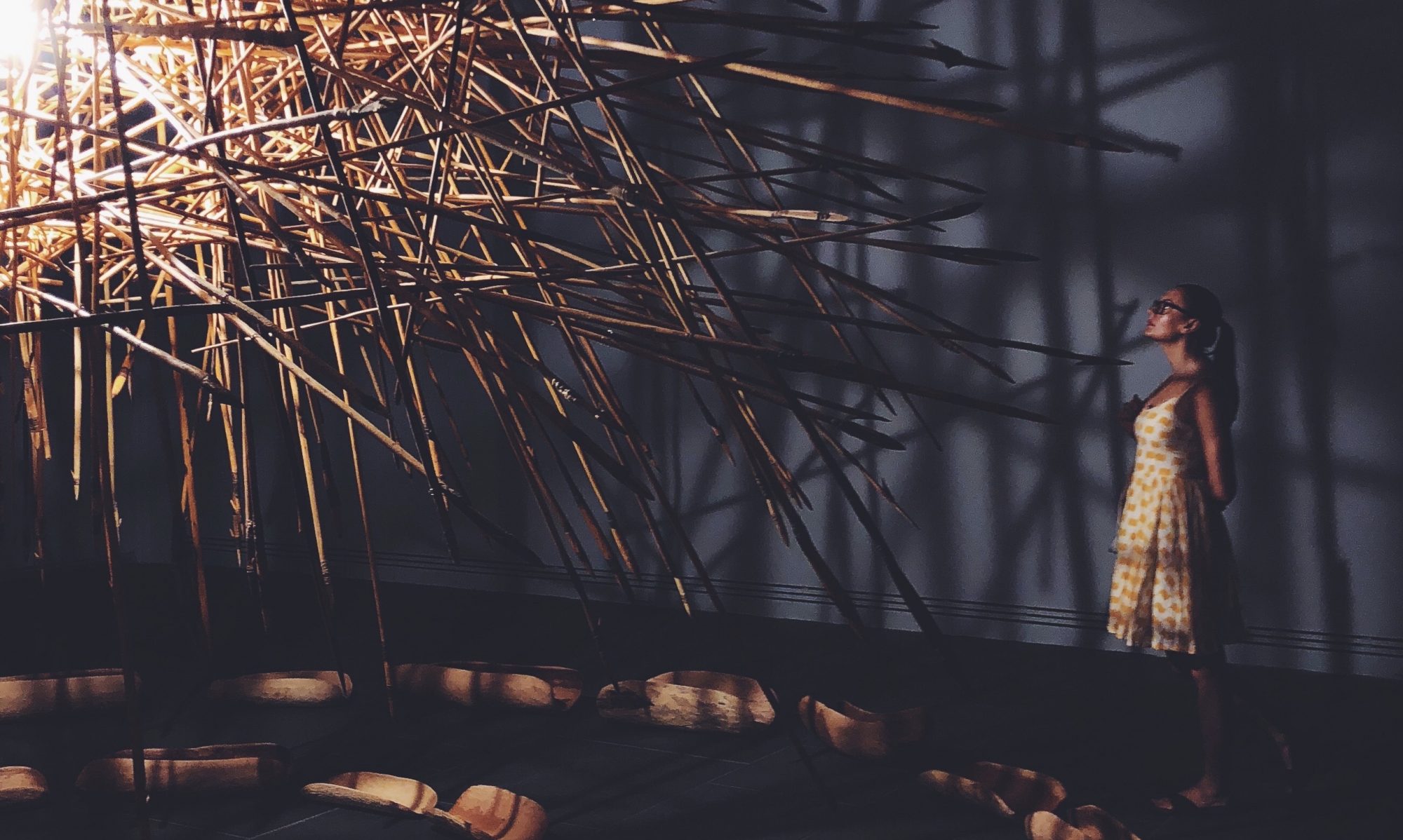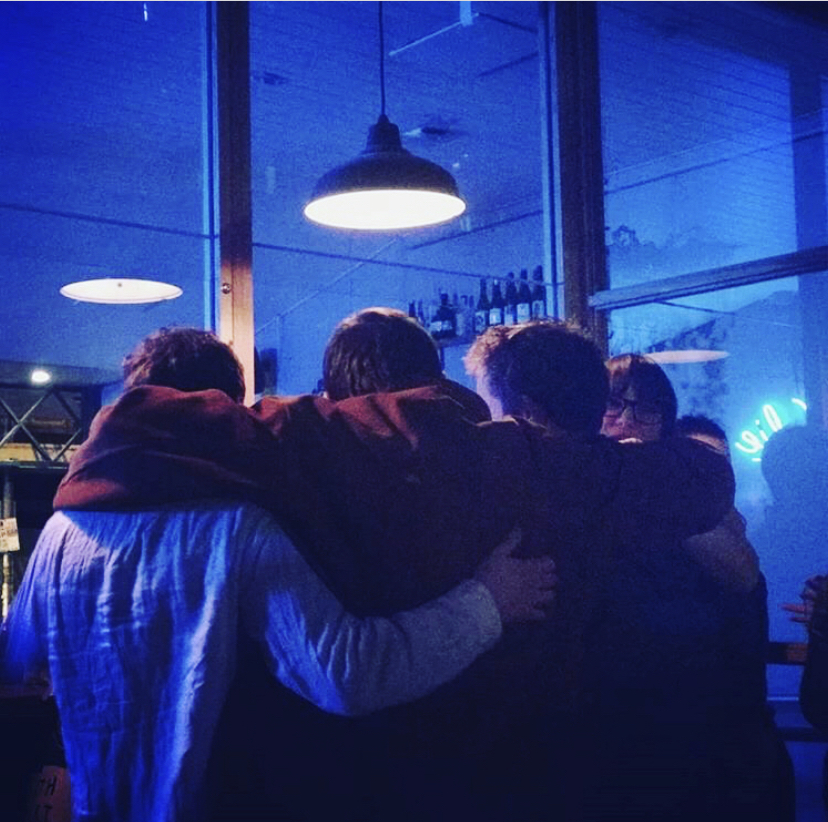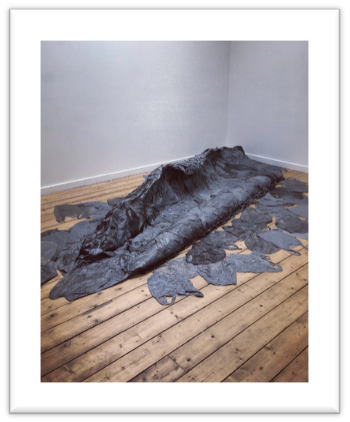Two years ago, my youngest brother Tony celebrated his thirtieth birthday. For the first time in a long time, my three brothers and I came together to celebrate in the same city at the same time, a rare occurrence these days.
I was five when Tony arrived in this world, and I remember vividly the beautiful chaos of that week. It was a week of suspense and then excitement: my aunties, uncles, and cousins came to stay (to help my parents and to welcome the new Trimboli to the fold), I did not have to go to bed at the usual time, and when I woke up each morning there was this amazing, weird-little-human-thing to stare at, talk to, and try to convince Mum to let me hold.
More than that, Tony’s arrival was the first time I can clearly remember understanding that I was a sister. I was a sister already – to two brothers, in fact – but I suppose at five years old I was beginning to intellectually register things in a more cognisant way. Prior to this, I had my big brother Matthew, seven years older (read: seven years cooler) than me, always doing everything I wanted to do – even if I did not understand the things he was doing, I knew absolutely that I wanted to be doing them, too. And I had Domenic, eighteen months or so younger than me and less ‘my brother’ than ‘my Domenic’, simply because it felt like he was already always right there beside me, more or less, a part of my everything, every adventure and mischief, every lie, laugh, smack, and scolding, my best friend and enemy simultaneously, and thus less my brother and more my constant conspirator – you know, my Domenic. So although it is true that I already was a sister before Tony arrived, up until his appearance it felt truer that I merely existed among brothers; the matter of being a sister, of what that felt like, of what that meant, did not really start to gain gravity until that moment.
While sitting beside my brothers at Tony’s thirtieth birthday, laughing hysterically at some ridiculous in-joke no-one else would find funny, it occurred to me that of all the labels I had been given or that I had come to adopt at different times throughout my life, sister is the one I loved always and the most. All other labels and names I have taken on seem to retain some element of discord; I can never fully shake a sense of apprehension about how the label is managing me in some way. But in ‘sister’ there is always comfort. “This is my sister, Daniella,” my brothers will say to introduce me to their friends and acquaintances at social events. The feeling I experience is comfort.
The comfort is the result of many things, no doubt. The importance that Calabrese culture places on family, together with our unconventional and stressful upbringing, meant that we banded together – a lot – even when we did not necessarily want to … because god damn siblings do not want to be friends sometimes. Indeed, do not get me wrong: sometimes, being a sibling is immense discomfort for me – it is annoyance, anger, frustration, even pain. Sometimes, it is arguing about something for so long you forget what started the argument. Sometimes, it is churlishly hurtling text messages at each other which you know will hit each other’s most sensitive of feelings; still others, it is flying into a rage blackout to protect them when you look across a pub floor and see a DJ holding one of them by the scruff of the neck and coming-to in the middle of a broil of men to the sound of your screeching voice: “DON’T FUCK WITH MY BROTHER!” (Sometimes, it is getting kicked out of a pub with your brother after getting into a melee that – turns out – “was kind of my [your brother’s] fault.”) I guess that is the point though – the discomfort has never been great enough to override the default position, which is, ultimately, comfort, and a dogged commitment to protect the source of that comfort above all else. (This is surely what Anna in Frozen II is getting at when she says to her sister Elsa: “If you don’t want me to run into fire, then don’t run into fire!” If you don’t want me to run into a brawl, then don’t get into a brawl!)
Being a sister creates a place for me, a world-within-the-World, a place I can locate quicker than any other place, a place within which my brothers will always hold space for me. I know this in the same way I know how my usual morning coffee tastes, or how it feels to slide into my oldest, comfiest slippers, where all the unique bends and distortions of my feet meet their homely indents, or any other routine element of my life that I know intimately but subconsciously.
When Tony arrived, being a sister suddenly meant something, it meant having a space, as well as giving a space, and I have carried this meaning around with me in one of my back pockets ever since. At various times over the years, I have taken this meaning out and held it in my hand, the way I hold a smooth rock at the beach sometimes and feel quietly strong. Being a sister is mostly pretty quiet, pretty mundane.
Three years ago, the year before Tony turned thirty, something less mundane happened, something the opposite, something big and shocking, something that caused the ground to give way beneath my feet, but of more concern to me, beneath my three brothers’ feet. The earth rumbled and split. Trauma I had long buried sprang up. I sat across a kitchen table from Domenic, both of us drunkenly finishing off tuna sandwiches (of all things to be eating at 4am?), and I watched the ground crack open between us. For a moment, I did not know if I would ever be a sister again, not in the same way.
But it is no coincidence that we carry something around in our back pocket. We do it because we know that sooner or later we are going to need to pull that thing out, not only to hold in our hands for momentary comfort, but occasionally to throw, far out into the ocean as we let out a yelp, and we are going to do this with a deep faith that it will be thrown back.
Domenic threw it back. Holding space for one another was not quiet on this night, it was loud, the loudest thing I have ever experienced. It rang at me from across the table, firmly talking to my falling, grief-stricken face: “this is going to be okay. Look at me. This is going to be okay.”
And over time, it was. Earth that has split open re-joins, unbearable loss becomes bearable, siblings return to the mundane rhythm of being siblings.
Three years ago, my three brothers showed up to loudly support me in a way I could never have foreseen and would never have requested. More than that, they faithfully, committedly, stood still for me. First, they made space for me to speak, then they held the ground around me, patiently and silently standing behind me as I attempted to move forward and figure some difficult things out. I needed to be in the lead for this particular navigation, but I never was a leader, not really, because you cannot lead anything if no-one is behind helping you, waiting to catch you, to remind you and to shout at you: “this is going to be okay. Look at me. This is going to be okay.”
Mum sneakily took the featured photo of the four of us at Tony’s thirtieth birthday, the last time we were physically together. It makes me smile looking at it, not least because I know I was seconds away from reporting back to the circle: “shit, Mum’s taking a photo of us, disband.”
How I adore being a sister to these people, my three brothers, Matthew, Domenic, and Tony. They give me joy, laughter, fortitude, pride. Above all else: they make me a sister. Without them, I do not make sense. Without them, I have one very empty pocket.


